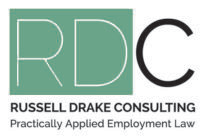The Employment Relations Act 2000 requires that ‘every Employer must provide every Employee with an Employment Agreement’. The Employment Agreement, whether this be an individual or a Collective Agreement, forms a legal record of the contractual terms of employment agreed between the parties. The parties being, in the case of an Individual Employment Agreement (IEA), the Employee and the Employer, and in the case of a Collective Agreement, the Employer and one or more Unions who represent a group of workers who will be employed under the agreed coverage clause.
While it is critical for an Employer to ensure that they select the correct type of Employment Agreement to use for a particular Employee (causal, fixed term, or permanent (part-time or full time) it is even more essential that the agreement is written in a way that can be easily understood and applied by the parties.
Many employment disputes arise, not due to the wrong type of agreement being selected (although this clearly does occur and does result in dispute) but due to the fact that the manner in which a clause has been drafted is ambiguous or does not clearly convey the intentions of the parties.
Many disputes arise where the Employer has a particular outcome in mind, however the wording they create to convey this can result in a different meaning or unintended consequence. Within our last newsletter we raised the issue of an Hours of Work Clause that was misinterpreted by a Labour Inspector resulting in them assessing the wage arrears to be four times greater than the actual arrears were assessed to be. Incorrectly drafted Hours of Work Clauses also raise issues with respect to the correct calculation of Annual Leave Entitlements due to the lack of clarify as to what defines the ordinary working week.
Even large organisations fall foul of the law in this respect, with one large Employer being liable for significant backpay to their staff where the ERA determined that their Annual Leave Clause defining a day of annual leave as eight (8) hours to be contrary to the Holidays Act, when an Employee’s usual day of work consisted of them working 12-hour shifts.
We have recently been involved in a collective bargaining situation where a dispute has arisen regarding the interpretation of a clause that enables staff who work extra hours to cover the absence of another Employee, to be paid an additional increment. The Employer has one interpretation of the clause that has governed how they have paid staff for several years, the union have a different interpretation of how staff should be remunerated, however when the clause has been reviewed the actual intention appears to be quite different to what either party believe.
We also see this problem occurring within other clauses such as Restraint of Trade and Non-solicitation. In many cases the Employer has simply inserted a ‘blanket clause’ (general wording) rather than ensuring the actual wording is fit for purpose and specific to the Employee’s particular situation. Such blanket clauses are generally unenforceable while a well written restraint undertaking clause can provide the degree of protection that the Employer is seeking.
Problems also arise within poorly drafted deductions clauses where the Employer believes they have a right to make a deduction from the Employee’s final pay for money owed to them, however when challenged, these clauses often do not have the legal basis to support the deduction as presumed. To emphasis this point, we were recently involved in a dispute situation where the Employer wanted to deduct the value of the insurance excess from an employee’s wages, where the Employee had damaged the company vehicle through neglect. The Employee challenged the right of the Employer to make this deduction with the Employer having to drop the claim as it was found that the wording that they were relying upon did not entitle them to make this deduction.
These are only a few of the examples that we have encountered with respect to disputes arising from poorly or incorrectly drafted clauses.
A few simple tips to provide a higher degree of protection within your agreements are:
Don’t just download ‘blanket clauses’ and insert these in your agreements if you are not completely sure whether this clearly conveys your intentions.
If what you are seeking to achieve is unique to an Employee or to your Company, consider having that clause professionally drafted to ensure your intention is correctly stated.
Draft clauses in ‘simple English’ where at all possible, avoiding the use of complex legal jargon or confusing sentences.
Have a third party review any unique clauses to confirm that their interpretation is the same as yours.
Remember, the small costs associated with getting something right in the first place may far outweigh the significant costs that you may incur in seeking to resolve a dispute at a later date.
If you need any assistance with drafting specific clauses for your Employment Agreements or policies and procedures, please feel free to contact us to discuss your requirements. We can also review any employment documentation you have concerns about or are wanting to make sure it aligns with your business – call us on 07 838 0018

